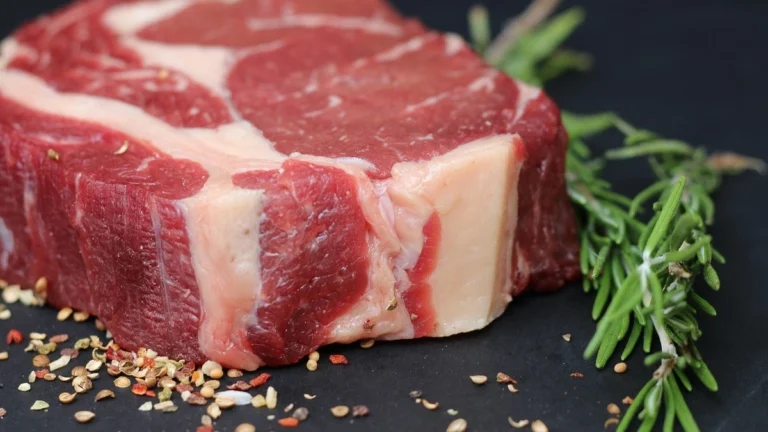Studies on the health benefits of makhana are limited. However, a large population of Asia is commonly using it. So, I will discuss here nutraceutical benefits of makhana, which should not be used as a sole agent for curing or addressing any health issue. However, it should be incorporated into a healthy diet (as supportive) to get its micronutrient benefits, especially for calcium and magnesium deficiency (which indirectly affects vitamin D metabolism).
As a pharmacist, I would emphasize that nutraceuticals like makhana are supportive in nature and should always be considered as an adjunct to medical advice, not as a replacement for standard treatment.
ABOUT MAKHANA
Fox nut is commonly known as Phool Makhana or Makhana in the subcontinent and Asia. It is also known as fox nuts, gorgon nuts, and Euryale ferox. These lotus seeds belong to the water lily family. It is an edible, puffy, and crunchy seed loaded with antioxidants and micronutrients with lots of health benefits.
Pharmacologically speaking, the presence of antioxidants and micronutrients makes makhana a valuable nutraceutical that supports cellular protection and metabolic health.
NUTRITIONAL VALUE OF MAKHANA
It is a low-sodium, low-fat, low-calorie, high-fiber, and protein-rich seed along with minerals and antioxidants. It is rich in calcium with a modest amount of magnesium, potassium, and phosphorus. It also contains vitamin B1, vitamin A, thiamine, iron, zinc, and good carbohydrates.
From a pharmacist’s perspective, this nutritional profile shows why makhana can be recommended as a healthy snack for patients with metabolic disorders, bone weakness, or dietary restrictions.
HOW MAKHANA STRENGTHENS BODY SKELETON?
When winter sets in, people face bone-related issues, which may be due to cold, physical inactivity, or vitamin D deficiency because of less exposure to the sun. It is important to strengthen our body skeleton naturally. So, what should we do? The answer is to take makhana daily. It contains calcium, phosphorus, potassium, zinc, magnesium, and protein. These nutrients play a crucial role in dealing with bone deformities such as osteoporosis and arthritis.
As a pharmacist, I highlight makhana for individuals at risk of osteoporosis, especially postmenopausal women and elderly patients, since its mineral profile supports bone density maintenance.
• CALCIUM IN MAKHANA AND BONES
From a pharmacist’s view, patients with low calcium intake or those unable to tolerate dairy can benefit from makhana as a plant-based calcium source.
• PHOSPHORUS IN MAKHANA AND BONES
As a pharmacist, I would point out that balanced calcium and phosphorus intake is crucial because an imbalance can affect calcification and bone strength.
• POTASSIUM IN MAKHANA AND BONES
Pharmacists know that potassium not only regulates calcium metabolism but also helps in blood pressure control, making makhana a dual-benefit seed.
• ZINC IN MAKHANA AND BONES
From a pharmacist’s perspective, zinc deficiency is often overlooked in bone health. Makhana offers a natural way to bridge this nutritional gap. Zinc helps bind minerals such as calcium with structural proteins. This process is required for proper bone formation.
• MAGNESIUM AND BONE HEALTH
Makhana contains a small amount of magnesium, which can affect bone health in both indirect and direct ways.
Indirect Impact of Magnesium on Bone Health
1. REGULATING VITAMIN D METABOLISM
• Magnesium acts as a helper (cofactor). It activates the enzymes that make and use vitamin D.
• Vitamin D helps the body absorb more calcium.
• More calcium means stronger bone calcification and improved bone density.
DOES MAKHANA CONTAIN vitamin D?
No, makhana does not have vitamin D. But the magnesium in makhana supports the body in using vitamin D more effectively, which indirectly benefits bone health.
2. EFFECT ON PARATHYROID HORMONE
• Magnesium also affects the parathyroid hormone (PTH), which is made in the parathyroid glands (near the thyroid in the neck).
• PTH regulates calcium, magnesium, and phosphate levels in the blood.
• Balanced PTH activity is important for healthy bones.
DIRECT IMPACT OF MAGNESIUM ON BONE HEALTH
• Low magnesium increases the activity of osteoclasts (cells that break down bone).
• At the same time, it decreases osteoblast activity (cells that build bone).
• This imbalance can weaken bones over time.
MAGNESIUM, OXIDATIVE STRESS, AND BONE
Magnesium works with antioxidants to reduce oxidative stress.
• Oxidative stress creates free radicals that disturb the balance between bone breakdown and bone formation.
• Too much stress can lower bone density and bone mass.
In short: Magnesium in makhana indirectly supports bone health by helping vitamin D work better and regulating parathyroid hormone. It also directly protects bones by supporting bone-building cells and reducing oxidative stress.
MAKHANA AND REPRODUCTIVE HEALTH
Makhana (fox nuts/lotus seeds) is often considered beneficial for both male and female reproductive health. Let’s break it down:
MAKHANA AND MALE FERTILITY
1. Makhana contains vitamin B1 (thiamine), which supports the production of sex hormones and improves testicular function.
2. It may help improve semen quality and reduce the risk of premature ejaculation.
3. The amino acid arginine in makhana helps maintain testosterone levels. It also improves sperm count and supports fertility.
4. In Ayurveda, makhana is known as an aphrodisiac that can increase libido (sexual desire).
MAKHANA AND FEMALE FERTILITY
1. Antioxidants and thiamine in makhana help maintain hormonal balance.
2. Moreover, balanced hormones support a regular menstrual cycle. They also improve the uterine lining.
3. The iron in makhana helps fight anemia, which improves fertility and the chances of conception.
4. Makhana can support weight loss, which is important since obesity and insulin resistance are linked to PCOS (polycystic ovary syndrome).
OXIDATIVE STRESS AND REPRODUCTIVE HEALTH
Oxidative stress can cause many reproductive problems such as:
• Miscarriage
• Pre-eclampsia (pregnancy-related high blood pressure)
• PCOS, endometriosis
• Damage to reproductive cells (eggs and sperm)
• Early birth or poor fetal growth
Makhana, with its antioxidants and anti-inflammatory properties, helps reduce oxidative stress and supports overall reproductive health.
MAKHANA, VITAMIN D, AND FERTILITY
1. Makhana contains magnesium, which helps the body use vitamin D.
2. Vitamin D is linked to ovarian reserve (egg count and quality) through a marker called AMH (anti-mullerian hormone).
3. In women, good vitamin D levels may improve egg quality and chances of conception.
4. In men, vitamin D boosts sperm motility (movement) by increasing calcium levels, improving fertility.
More research is needed to confirm the exact role of makhana in vitamin D-related fertility.
MAKHANA AFTER CHILDBIRTH (POSTPARTUM)
After delivery, women may experience fatigue, body pain, weak bones, digestion problems, and inflammation. Makhana can help because it provides calcium and phosphorus to strengthen bones, and protein to support healing and cell repair.
In addition, its fiber improves digestion and antioxidants reduce inflammation. Other micronutrients support lactation, improve sleep, and help with postpartum recovery.
OTHER HEALTH BENEFITS OF MAKHANA
Besides supporting bones and fertility, makhana offers several additional health benefits:
1. SPLEEN, LIVER AND KIDNEY
Makhana works as a natural detoxifier, helping remove toxins and supporting the healthy function of the spleen, liver, and kidneys.
2. HEART HEALTH
Makhana is low in sodium and fat. It also contains antioxidants (gallic acid, chlorogenic acid, epicatechin, flavonoids), potassium, and magnesium. Together, these nutrients help lower blood pressure, reduce inflammation, and protect heart health.”
3. DIABETES MANAGEMENT
• Low glycemic index snack → prevents sudden spikes in blood sugar.
• Fiber + protein → improve satiety and blood sugar control.
• Antioxidants and minerals → promote weight loss, protect the heart, and reduce oxidative stress linked to diabetes.
MAKHANA AS GLUTEN-FREE DIET
Makhana is a good snack for people allergic to gluten present in wheat because it is a gluten-free seed.
As a pharmacist, I often see patients struggling with gluten intolerance or celiac disease. In such cases, recommending gluten-free natural snacks like makhana can be a safe dietary alternative.
4. SKIN & ANTI-AGING
• Kaempferol, glutamine, vitamin E, vitamin C, zinc, saponins, alkaloids → fight free radicals.
• Boost collagen production, improve skin elasticity, and reduce wrinkles and fine lines for healthy, youthful skin.
In summary: Makhana not only supports reproductive and bone health but also detoxifies organs, protects the heart, helps manage diabetes, and keeps skin youthful.
TAKEAWAY NOTE
Makhana is desi popcorn with numerous health benefits, especially for bone and fertility issues. Daily moderate consumption is safe for use. Precautions must be taken if someone is allergic or has digestive issues with its consumption.
In conclusion, as a pharmacist, I recommend makhana as a functional food that supports bone health, reproductive wellness, and overall vitality. However, it should always be part of a balanced diet and not used as a replacement for prescribed medical therapy.
FAQs ABOUT MAKHANA
1. How much makhana should I eat daily for health benefits?
A moderate portion (about 25–30 grams or 1 small bowl per day) is generally safe and beneficial as part of a balanced diet.
2. Can makhana replace calcium supplements for bone health?
No. Makhana can support calcium intake but cannot replace prescribed calcium or vitamin D supplements. Always follow your doctor’s advice.
3. Is makhana safe during pregnancy?
Yes, in moderate amounts, makhana is safe and beneficial during pregnancy. However, women with specific health issues should consult their doctor before regular use.
4. Can makhana improve male fertility?
Yes, makhana contains thiamine, arginine, and antioxidants, which may support sperm quality and hormone regulation.
5. Does roasting or frying affect the nutrients in makhana?
Dry-roasting is the healthiest method. Deep-frying may reduce its benefits and add extra calories.
DISCLAIMER
The information in this article is for educational purposes only and should not be considered a substitute for professional medical advice. Makhana (fox nuts) is a nutraceutical food that can support bone health, fertility, and overall well-being but should not be used as a sole treatment for any medical condition. Always consult a qualified healthcare professional before making changes to your diet or treatment plan.
CALL TO ACTION
If you are looking for a natural way to support your bone strength and reproductive health, consider adding makhana to your daily diet in moderation.
As a pharmacist, I recommend combining nutraceuticals like makhana with a balanced lifestyle and proper medical guidance.
Have you tried makhana in your diet? Share your experience in the comments
Read more: https://pharmahealths.com/alcohol-cancer-risk-ethanol-carcinogenic/
REFERENCES
1. Nutrient composition of fox nuts (Euryale ferox) highlighting calcium, magnesium, and antioxidants.
2. Role of magnesium in vitamin D metabolism and parathyroid hormone regulation.
3. Pharmacological studies showing antioxidant and anti-inflammatory effects of lotus seeds.
4. Research on reproductive health benefits of antioxidants and amino acids (including arginine) in male and female fertility.
5. Traditional Ayurvedic uses of makhana for bone health, digestion, and as an aphrodisiac.







